#Soil Amendments
Explore tagged Tumblr posts
Text
Synthetic Gypsum Market: A Growing Alternative with Sustainable Potential

In recent years, the synthetic gypsum market has witnessed a substantial rise, largely propelled by industries that value sustainable, cost-effective alternatives to natural resources. Synthetic gypsum, produced as a byproduct from various industrial processes, has carved out a vital role across sectors like cement production, building materials, gypsum board manufacturing, soil amendments, and even dentistry. This market trend is not just about substituting natural gypsum but also about supporting industries with a more environmentally friendly and accessible option.
Synthetic gypsum market size is projected to grow from USD 1.4 billion in 2024 and is projected to reach USD 1.8 billion by 2030, at a CAGR of 4.3%.
Let’s delve into the unique dynamics and potential of synthetic gypsum, highlighting its applications, challenges, and emerging opportunities for industries that are increasingly focused on sustainable growth.
What is Synthetic Gypsum?
Synthetic gypsum is chemically identical to natural gypsum—both composed of calcium sulfate dihydrate. However, unlike natural gypsum that is mined, synthetic gypsum is a byproduct, often generated from industrial processes like flue gas desulfurization (FGD) in coal-fired power plants. When these plants capture sulfur dioxide emissions to reduce air pollution, the process yields synthetic gypsum as a usable byproduct. This environmentally beneficial cycle transforms waste into a resource, aligning with broader sustainability goals.
This "upcycled" form of gypsum can be used almost interchangeably with natural gypsum in many applications, thus reducing the demand for mining activities and conserving natural resources.
Key Factors Driving Market Growth
Sustainable Construction and Building Materials: In today’s world, there’s a growing demand for greener building solutions. Since synthetic gypsum comes from recycled industrial byproducts, it’s an attractive option in the construction industry. It conserves natural gypsum reserves, reduces waste, and helps minimize environmental damage, making it an ideal choice for eco-conscious builders and contractors.
Increasing Regulatory Focus on Environmental Protection: Environmental regulations around air quality have driven more facilities to adopt FGD systems, inadvertently boosting synthetic gypsum supply. Governments worldwide have implemented strict environmental policies to reduce industrial emissions, further encouraging the use of synthetic gypsum. The fact that this byproduct can be reused in critical industries only strengthens its appeal.
Surge in Demand for Gypsum Board: The construction boom, particularly in urbanized and rapidly developing regions, has led to an increased demand for drywall. Synthetic gypsum plays a critical role in gypsum board production, offering a fire-resistant, durable, and easy-to-install building material that is highly valued in the construction industry. With this demand on the rise, synthetic gypsum is increasingly essential to meet production needs.
Growing Agricultural Applications: Agriculture is an emerging avenue for synthetic gypsum, where it acts as a soil conditioner. Gypsum helps improve soil structure, enhance water absorption, and prevent erosion. This application has gained attention worldwide, especially in arid and semi-arid regions where synthetic gypsum can provide essential nutrients like calcium and sulfur, improving crop yield and soil health.
Dental and Medical Fields: While perhaps less known, synthetic gypsum is also used in dentistry to create molds and impressions. Its uniformity and purity make it a great choice for this precision-driven field. This niche application is opening up new avenues for synthetic gypsum, as dental professionals recognize its benefits over traditional materials.
Key Applications of Synthetic Gypsum
Cement Production: In cement production, synthetic gypsum is added to clinker to control the setting time. This not only helps improve the consistency of cement but also enhances its structural properties. With synthetic gypsum as an alternative, cement producers can opt for a sustainable and cost-efficient material, supporting their production processes without compromising quality.
Gypsum Board (Drywall) Manufacturing: Synthetic gypsum has a pivotal role in gypsum board manufacturing, particularly in regions like North America and Europe. Gypsum board, made of a gypsum core sandwiched between paper liners, is essential for interior construction. It offers fire resistance, ease of use, and cost-effectiveness. As construction activities increase globally, especially with new housing and commercial projects, synthetic gypsum's demand is set to grow significantly in this segment.
Soil Conditioner in Agriculture: For agricultural use, synthetic gypsum has shown promise as an effective soil amendment. It can improve soil quality by adding calcium and sulfur, enhancing root growth, and aiding in water absorption. This is particularly beneficial in saline or sodic soils, where gypsum helps to balance the soil structure, allowing for better crop growth and soil health.
Dental and Medical Uses: In the dental industry, synthetic gypsum is highly valued for its use in creating dental molds, impressions, and casts. Due to its chemical consistency and purity, synthetic gypsum is a preferred choice in this field, meeting the precision requirements necessary for high-quality dental applications.
Challenges and Future Opportunities
While synthetic gypsum holds numerous advantages, the market does face a few challenges. Transportation costs can be high due to the weight and bulk of gypsum, which may limit its usage in areas far from production facilities. Quality control is another consideration, as synthetic gypsum derived from different sources can vary, making consistent standards necessary, especially for high-end uses in industries like construction and healthcare.
However, the future looks bright for synthetic gypsum. As sustainable materials gain popularity and industries continue to prioritize recycled content, synthetic gypsum is well-positioned to meet the growing demand. Emerging markets, in particular, offer significant potential as they expand infrastructure and prioritize environmentally friendly resources. Additionally, advancements in synthetic gypsum production processes could further enhance its quality, expanding its application potential across new sectors.
To know more Download PDF Brochure :
The synthetic gypsum market is more than just a substitute for natural gypsum—it’s a sustainable alternative that holds unique value across multiple industries. By repurposing industrial waste, synthetic gypsum helps conserve natural resources, supports sustainable manufacturing practices, and meets the needs of diverse applications. From construction and agriculture to healthcare, synthetic gypsum is making a positive environmental impact, helping industries reduce their carbon footprint and promote greener practices. As industries continue to move towards sustainability, synthetic gypsum’s role is only set to grow, carving a more substantial presence in the global marketplace and contributing to a greener future.
#Synthetic Gypsum Market#Sustainability#Cement Industry#Building Materials#Gypsum Board#Soil Amendments#Eco-Friendly Solutions
0 notes
Text

Impello Biosciences : Nurturing Growth with Organic Soil Amendments
Discover the power of organic soil amendments with us. Our eco-friendly solutions enrich the soil, promoting healthier plant growth while respecting the environment. From compost blends to natural fertilizers, Impello Biosciences's organic soil amendments are designed to enhance soil health and increase crop yields sustainably. Nurture your garden, farm, or landscape with us and experience the benefits of organic, earth-friendly agriculture.
0 notes
Text
What Are Soil Amendments?
Soil amendments are products added to the soil to improve soil’s physical, chemical, or biological properties. Some of these properties that amendments are used for include increasing soil fertility or water-holding capacity and decreasing compaction or erosion. Soil amendment differs from fertilizer by modifying the condition of the soil itself, whereas fertilizer adds nutrients to the soil.
There are also 2 general categories that soil amendments fall under: organic and inorganic.
Organic soil amendments are composed of materials that were previously living matter. In contrast, inorganic amendments are made of mined or artificially created materials.

Some organic materials used in soil amendments include:
Wood chips
Grass clippings
Compost
Manure
Sawdust
A few examples of inorganic materials include:
Lime
Gypsum
Rock powders
When Should Soil Amendment Be Used?
One reason to use soil amendments is to alter the soil’s pH. The soil’s pH level needs to be within a specific range to give plants adequate access to nutrients. For example, some plants prefer more acidic soil, while others thrive in more alkaline soil. You will need to have a plant health care specialist test your soil to determine its current pH and what treatment is required to help your plants’ health.
Regarding the time of year, soil amendments can be applied at any time, but the ideal times are early spring or late fall. This is because soil amendments are more easily incorporated when the soil is bare and dry. If you apply them in the spring, they will be more effective at helping your plants grow because you will be fertilizing your plants and improving the soil. When soil amendments are applied in the fall, they will have time over winter to break down and become part of the soil before you plant again in spring. The types of soil amendments used also differ depending on the season.
Spring Soil Amendment
During spring, we recommend a potassium-only fertilizer with the necessary nutrients. This helps improve the plant’s resistance to stress factors such as disease pressure, extreme temperature fluctuations, and drought conditions. In addition, this systemic nutrient formulation stimulates health and vigor without triggering excess physical growth.
Fall Soil Amendment
During the fall, plants absorb and store nutrients for the initial spring growth period. As a result, supplying the nutrients often lacking in landscape soils is vital. We fertilize with a slow-release fertilizer to ensure the availability of essential macro and micronutrients. This amendment also gives plants and trees the sustenance necessary for healthy growth and resistance to insects, disease, and harsh environmental conditions.
Benefits of Soil Amendment
One of the benefits is restoring your soil’s pH balance. If the pH balance of the soil is too high or low, certain nutrients (potassium, nitrogen, and other elements) become more difficult or less available for plants to absorb, which can negatively impact the health of the plants. As a result, plant health care experts will use soil amendments to modify the soil’s pH balance.
Some of the other benefits of soil amendments include the following:
Organic materials in soil amendments help encourage plant growth.
Soil amendments help improve aeration, prevent soil compaction, allow air to flow more freely, and improve the soil’s drainage.
Organic soil amendments can improve certain soils by improving the soil’s ability to store nutrients and water.
Contact Burkholder PHC for Soil Care Services
If you want to keep your plants and trees healthy with soil amendments, contact Burkholder PHC. We offer many plant health care services in addition to soil care, such as plant growth regulators, plant pest control, and more. In addition, our team of specialists has years of experience maintaining the health and vibrancy of landscapes in the Main Line area. For more information about our services, request a free consultation today.
Blog is originally published at: https://www.burkholderphc.com/what-are-soil-amendments/
It is republished with the permission from the author.
0 notes
Text
Organic Fertilizers: A Double-Edged Sword for Water Sources
Organic gardening has been gaining popularity as more people are becoming aware of the health benefits of consuming food free from pesticides. However, even organic fertilizers can have negative effects on water sources if not used correctly. According to Bradley Secraw, a Cleveland County Oklahoma State University Extension agriculture educator, moderation is necessary when it comes to the use…

View On WordPress
0 notes
Text
September 2024: The Days Leading To Our Nineteenth Anniversary



Wednesday harvest:
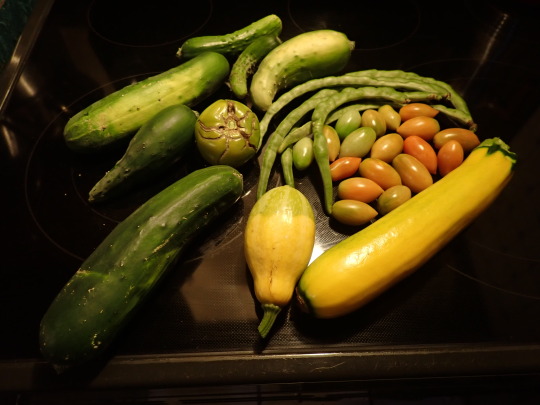
We cleared out the summer vegetables to make room for the cool season vegetables:

If no one else does, he wants to hear what is on your mind:

We're still working on this bed but the goal is pollinator magnet:
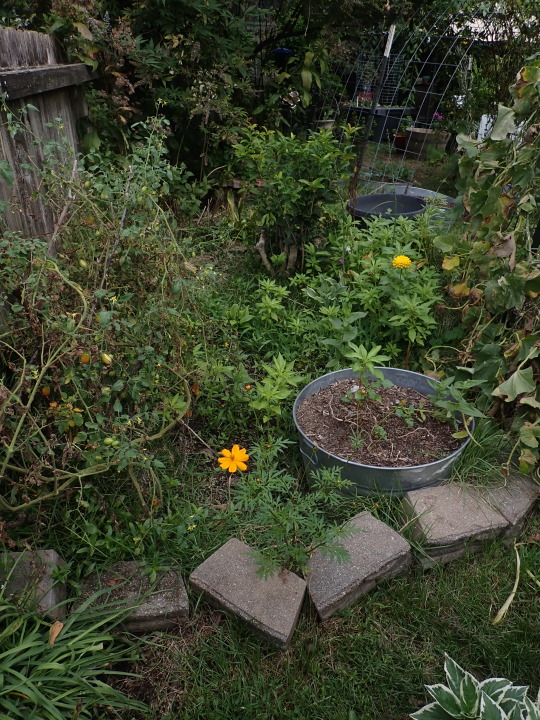
It came in the mail:
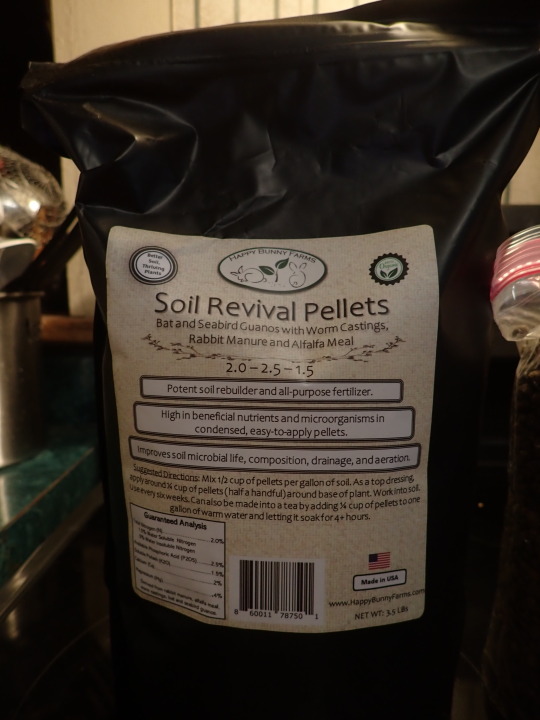
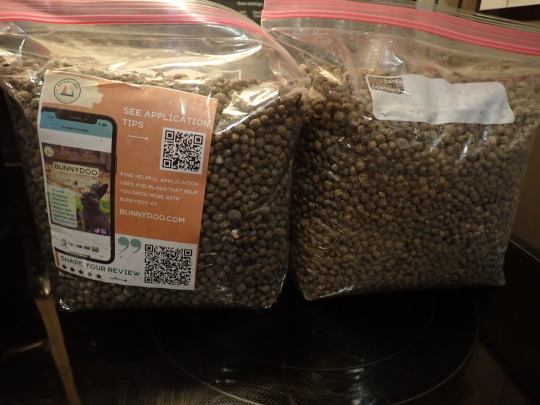
Anniversary flowers:

Sunday harvest:
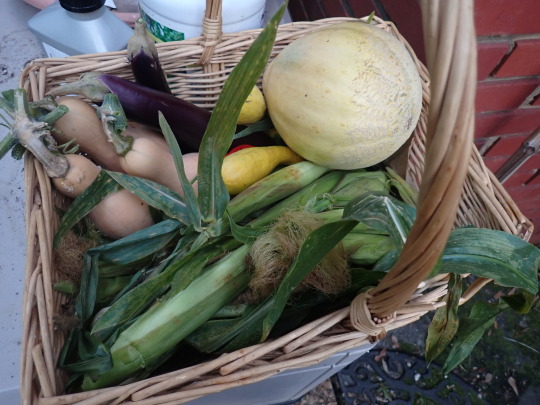
Cool season plantings.
Kale:
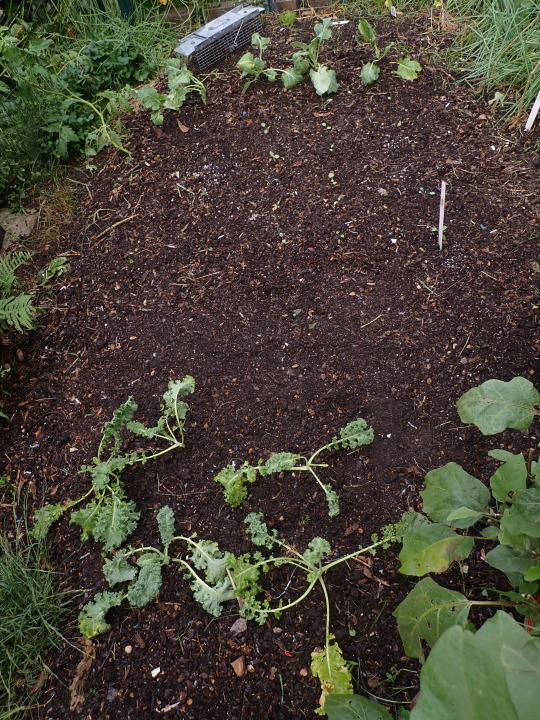
Cabbage:
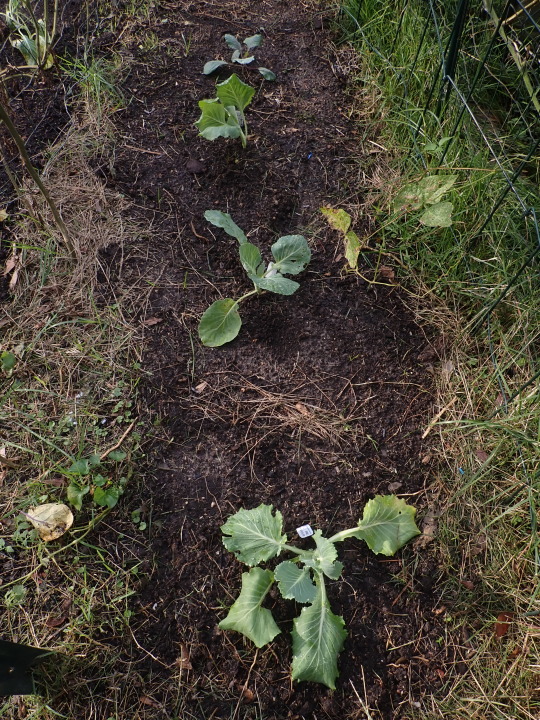
Swiss chard, brussels sprouts, bush beans, broccoli & cauliflower:
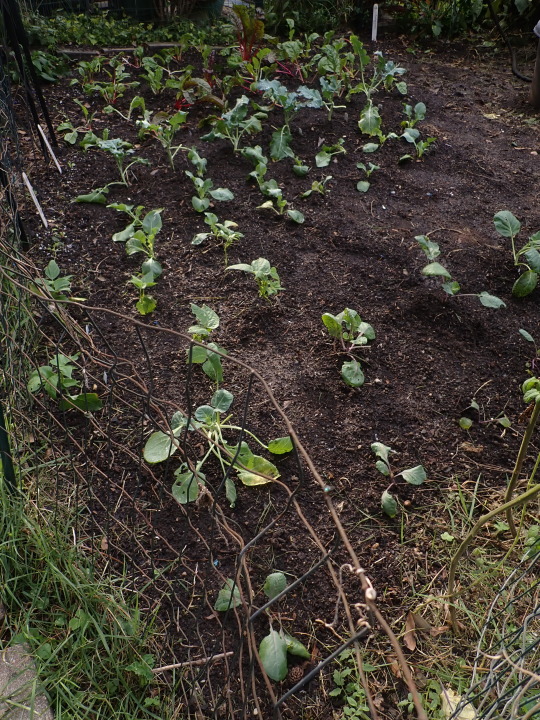
Spinach:
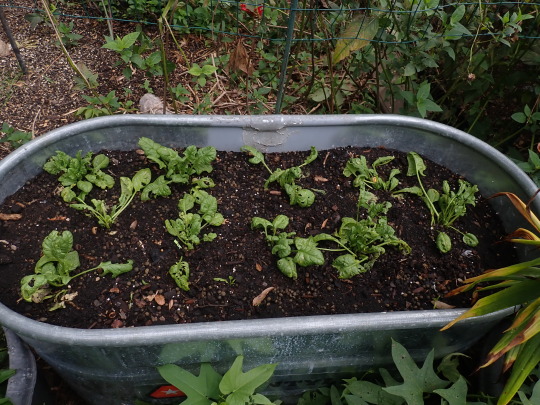
Swiss chard & peas:
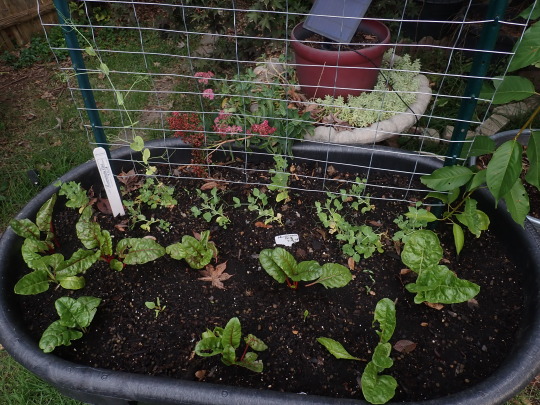

Anniversary day dinner:

Lost soul:

We trekked over to Arkansas to check out a lake at a wildlife refuge. The road to the lake was out so no photos of the lake but have these photos of crossing the Mississippi River back into Tennessee:


Tuesday back at the house:

My queen working magic:

Tuesday on the grill:

Tuesday dinner:

#anniversary#wedding anniversary#nineteenth anniversary#flowers#cosmos#back yard garden#zinnia#vegetables#homegrown vegetables#harvest#tomatoes#summer squash#zucchini#cucumbers#purple hull peas#gardening#cool season plants#ceramic frog#fertilizer#soil amendment#happy bunny farms#bunnydoo#eggplants#corn#cantaloupe#butternut squash#cabbage#swiss chard#broccoli#kale
12 notes
·
View notes
Text







#prepping#survival#emergency#war garden#food preservation#self sufficiency#victory garden#planting#soil#soil testing#soil amendment#gardening
3 notes
·
View notes
Text
Healthy Soil, Happy Garden: The Power of Regenerative Farming
Healthy Soil, Happy Garden: The Power of Regenerative Farming. Learn how to garden with natural Methods for regeneration #organicgarden #permaculture #soil #regenerativeagraculture
Field of sheep. Animals are a great way to add fertilizer and bring biodiversity to the garden. Welcome to the world of gardening, where the magic of nature meets the enthusiasm of the human spirit. As a regenerative gardener , I am excited to share with you the importance of healthy soil and how you can create it in your own backyard. But first, let’s talk about what regenerative farming is all…

View On WordPress
#amending soil#composting#gardening#gardening tips#gardentips#growfoodathome#homesteading#how to build garden beds#how to garden#permaculture garden#soil building#soil Health
6 notes
·
View notes
Text
Not all of us have a green thumb, but we can still love a good plant tip! National Houseplant Appreciation Day is here, so let’s help our leafy friends thrive. 🌱
National Houseplant Day
Pro tip: Rotate plants weekly for even sunlight and wipe those leaves clean. What’s your favorite houseplant? Share it in the comments! #HouseplantDay #GreenThumbGoals Houseplant Short Story: The sunbeams danced across the dusty windowpane, illuminating a forgotten corner of the room. Nestled amongst forgotten trinkets and half-finished projects sat a forlorn fiddle leaf fig. Its once vibrant…

View On WordPress
#a flicker of guilt sparked within. The owner#a toast to resilience#a vibrant shade of green#amidst the chaos#and a constant feeling of being overwhelmed. The fig#and nutrients. The fig#and placed it in a sunny spot. Days turned into weeks#and slowly but surely#became a symbol of hope and renewal. It was a reminder that even in the midst of chaos#carefully repotted the fig into fresh soil#decided to make amends. With a newfound determination#drawn to the fig&039;s pitiful state#drooped dejectedly#ensuring they received the right amount of light#felt a sense of calm descend. The fig#had become a casualty of this frenetic pace. Watering had become an afterthought#illuminating a forgotten corner of the room. Nestled amongst forgotten trinkets and half-finished projects sat a forlorn fiddle leaf fig. It#in its quiet resilience#in its silent suffering#late nights#now a sickly shade of yellow#now thrived#observing this gradual transformation#on National Houseplant Day#once a symbol of neglect#once a symbol of vibrant life and a source of quiet joy#one day#reaching towards the light. The owner#renewal#sunlight a distant memory. The fig
0 notes
Text
How Soil Amendment Testing Can Reduce Fertilizer Costs
Soil amendment test provides the insights necessary to make informed decisions about fertilization, crop selection, and long-term land management strategies. For more details, visit https://mbiometer.medium.com/how-soil-amendment-testing-can-reduce-fertilizer-costs-3316c0c6f328

0 notes
Text
Organic Soil Amendments Market Size, Demand, Report 2023-2030
BlueWeave Consulting, a leading strategic consulting, and Market research firm, in its recent study, estimated Global Organic Soil Amendments Market size by value at USD 5,022.60 million in 2023.During the forecast period between 2024 and 2030, BlueWeave expects Global Organic Soil Amendments Market size to expand at a CAGR of 3.87% reaching a value of USD 6,514.41 million in 2030. Global Organic Soil Amendments Market is driven by increasing awareness of chemical fertilizers' environmental impact and health risks. Consumers and farmers are opting for organic soil amendments to promote sustainable agriculture and reduce pollution. Soil health is crucial for long-term agricultural productivity, and the organic food industry growth is driving this demand. Technological advancements and innovations in organic soil amendment products are making them more accessible and attractive to farmers. Government policies and subsidies support this shift towards organic farming practices.
Opportunity – Growing popularity of urban agriculture and home gardening
The growth of urban agriculture and home gardening is driving the demand for organic soil amendments. As more individuals and communities engage in sustainable practices, the use of organic composts, manures, and other natural soil enhancers becomes essential. These amendments improve soil health, boost plant growth, and enhance crop yields, making them popular among urban gardeners and small-scale farmers. The trend is expected to continue to support the expansion of Global Organic Soil Amendments Market, reflecting a growing preference for eco-friendly and self-sufficient food production methods.
Sample Request @ https://www.blueweaveconsulting.com/report/organic-soil-amendments-market/report-sample
Impact of Escalating Geopolitical Tensions on Global Organic Soil Amendments Market
Geopolitical tensions are causing significant disruptions in Global Organic Soil Amendments Market, leading to increased costs and uncertainties. The Russia-Ukraine war has caused supply shortages and price hikes in essential raw materials like potash and phosphorus. Trade restrictions and tariffs imposed during these conflicts also contribute to market instability. The United States-China trade war has led to increased tariffs on agricultural products, impacting American farmers' access to affordable organic soil amendments. Economic sanctions on countries like Iran and North Korea restrict their ability to import or export agricultural products, limiting market growth and straining global supply chains.
Fruits & Vegetables Segment Is Largest Crop Type in the Market
A spurring demand for organic produce across the major crop types including fruits & vegetables, cereals & grains, and oilseeds & pulses segments. The growth in the dominant fruits & vegetables crop type segment benefits from consumers' preference for organic farming practices that enhance soil health and crop yield without synthetic chemicals. Rising awareness about environmental sustainability and health benefits associated with organic fruits and vegetables is expected to further propel the growth of fruits & vegetables segment in the Global Organic Soil Amendments Market by crop type.
Competitive Landscape
Global Organic Soil Amendments Market is fiercely competitive, with numerous companies vying for a larger market share. Major companies in the market include BASF SE, Bayer AG, UPL, Delbon, Haifa Group, FMC Corporation, Soil Technologies Corp, The Fertrell Company, Agrinos, T.Stanes & Company Limited, Novozymes, Timac Agro, ADAMA India Private Limited, Biosoil Farms, Symborg, and Nufarm. These companies use various strategies, including increasing investments in their R&D activities, mergers and acquisitions, joint ventures, collaborations, licensing agreements, and new product and service releases to further strengthen their position in Global Organic Soil Amendments Market.
Contact Us:
BlueWeave Consulting & Research Pvt. Ltd
+1 866 658 6826 | +1 425 320 4776 | +44 1865 60 0662
0 notes
Text
Planting Should Not Be Complicated
Soil amendment should not be excessive. Autumn and winter are generally the best seasons for planting. Most vegetation is either less active than during other seasons, or dormant. It is therefore more complaisant to the distress of planting procedures. Weather is cooler and wetter than during other seasons. It is therefore less stressful to vulnerable vegetation recovering from planting…

View On WordPress
0 notes
Text
Our 2025 garden: No, it's not too early
Today the last day of July. We’ve got about a month and 10 days before our first average frost day, though if we’re lucky, that won’t happen until much later. We haven’t even harvested our garlic yet, but when we do, we need to think about what to do with the empty beds. I’ve been considering planting some very short season crops, but there just doesn’t seem to be much point. Not with only about…

View On WordPress
0 notes
Text
Soil Amendments Service

At ExperiGreen we offer a comprehensive list of soil amendments and lawn services. We also offer Perimeter Pest Control and Mosquito Control services. In some markets, we are proud to offer Professional Tree & Shrub Care Service as well. A key beneficial service that we often recommend is a soil amendment. In most cases, this would be an application of lime, but sulfur may be used in areas of high pH or alkaline soils. Soil amendments work to modify the soil pH slightly, which improves nutrient uptake. If soils are too acidic or alkaline, they tend to “tie up” the nutrients applied to the lawn. Your lawn is then better able to utilize the nutrients from our professional fertilizers.
#Experigreen#Soil Amendments Service#Perimeter Pest Control#Mosquito Control Services#Professional Tree & Shrub Care#cincinnati#dublin#gahanna#illinois#indiana#indianapolis#michigan#mishawaka#ohio
0 notes
Link
1 note
·
View note
Text
Growing Blueberries in South Texas
I bought two blueberry plants from Raintree Nursery a couple of years ago. I’m really enjoying having my own supply. This is today’s haul: Just enough to make me happy! The plants are still small, but they’re still young. Blueberries need acidic soil and lots of water. They have a shallow root system. You can solve these issues by planting them in raised beds with irrigation and giving them…

View On WordPress
0 notes
Text
Growing Blueberries in South Texas
I bought two blueberry plants from Raintree Nursery a couple of years ago. I’m really enjoying having my own supply. This is today’s haul: Just enough to make me happy! The plants are still small, but they’re still young. Blueberries need acidic soil and lots of water. They have a shallow root system. You can solve these issues by planting them in raised beds with irrigation and giving them…

View On WordPress
0 notes